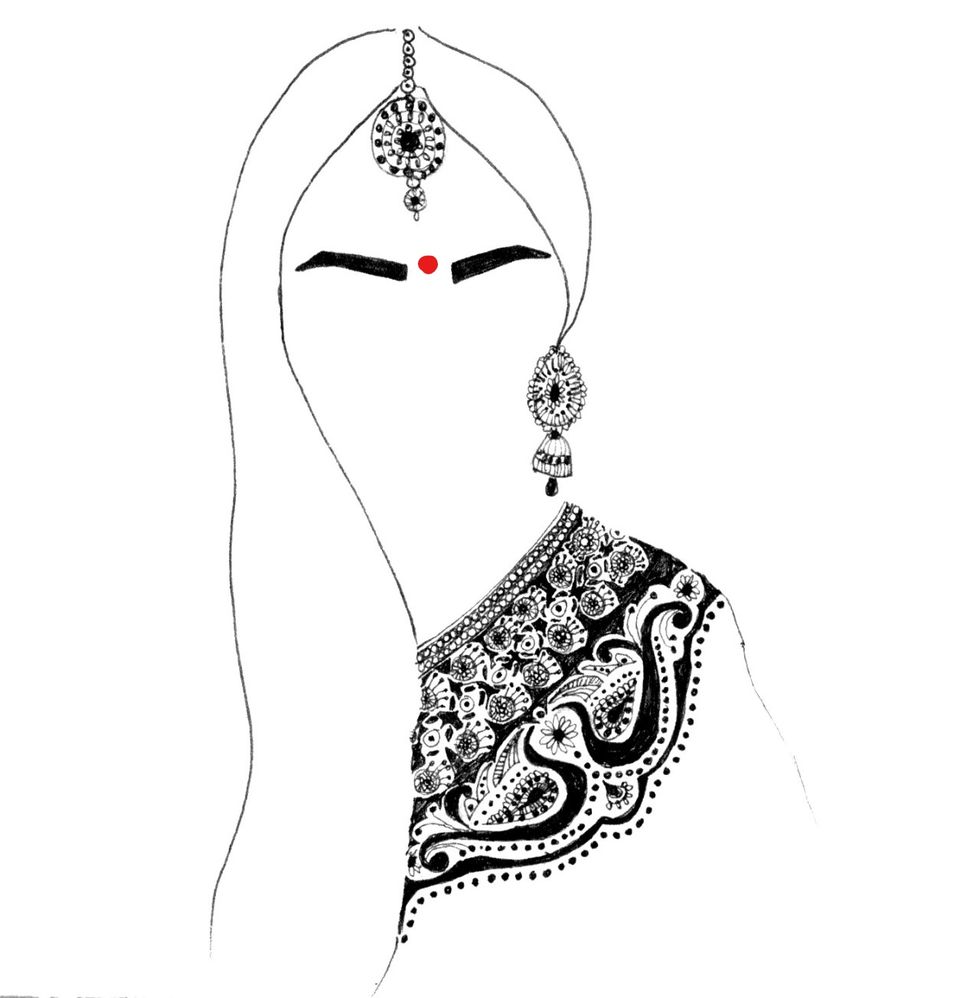It's (or it was ) Coachella season. It's a time where international pop stars, celebrities, and various bloggers go to California to celebrate music, art, and party nonstop.
They also "celebrate" cultures. Something about the music and art really makes people of non-Indian, African American, and Native American heritage want to wear bindis, cornrows, and Native American headdresses. It isn't just the beauty bloggers or the regular party goers, it's the celebrities who wear this cultural pieces, and indirectly tell the public it is ok to wear these pieces (looks at the Kardashians/Jenners). What thoroughly disgusts me is the mocking and disrespect of " We're a culture, not a costume" campaign with memes of dogs, skeletons, and tv characters.
It should be simple right, you don't wear what's not yours. Especially when you didn't have to face the suffering or hate that the people of those heritages had to go through to get to the point where they can love and appreciate their cultures. Especially because you didn't have to assimilate into another culture because you weren't taken seriously until you did.
This is really just a matter of privilege. Let me explain.
My parents moved to the United States very young to give me a future. My parents didn't care very much what people thought of them. My dad worked with adults, who were accepting of him, and loved Bianca lunches. My mother found other Indian stay-at-home moms who she could relate to, and talk to.
But somehow it was really difficult for me.
I went to a predominantly white school, and I used to wear bindis and bring Indian food for lunch. I made friends, no problem, but I transferred classes so they could see which class I could fit into. In kindergarten, I could barely speak proper English. In third grade, I remember a group of girls looking at my food and make gagging noises. This was a group of eight-year-old girls. Children can be cruel. In sixth grade I overheard a group of girls say that I licked my bindi and put it back on my forehead so I can do well on math tests. When I told my counselor this she told me I was over reacting.
After that year I moved and went to a different middle school where I removed my bindi, stopped wearing Indian clothes, and begged my mom to make me sandwiches every day. My parents never would understand why I would need to do that. It created this sort of suffocating pressure to comply to my parents and also try and fit in at school, and in the end, I would fight with my parents to fit in.
After that I went to high schools where there were more members of my culture and I saw girls wearing bindis without being discriminated against, and it was all so new to me. Within my three years of high school, I came to appreciate my culture and slowly bring those small things back into my life. Yet still some part of me freaks out when my parents ask me to wear a bindi to school, or when non-Indian kids have to see pieces of Indian movies for presentations, and I don't know if I will ever get over that. What I truly hate is the part of me that sometimes judges girls of my ethnicity for wearing Indian clothes. That judgment comes with a sense of discomfort, and a sense of self-shame for thinking like that. That is how much I was conditioned to be averse to my culture
For me it isn't about the culture that these girls are appropriating.It isn't that they don't understand the culture and the religion (even I had to learn what the bindi means). It hurts me that the part that makes me, me, that part of me that had to fight for acceptance, that the part of me that had to spray my backpack with perfume so it wouldn't smell like curry, that part of me that had to take off my bindi and put it back on the bus ride home, struggled so much while those girls are making money for their Instagram bindis. I hate it even more when they are called out and they have these half hearted apologies, sometimes they don't even apologize, they make excuses, and fight the people who called them out.
It is the most blatant display of white privilege and ignorance, and I will not stand for it until they struggle like I have.
















